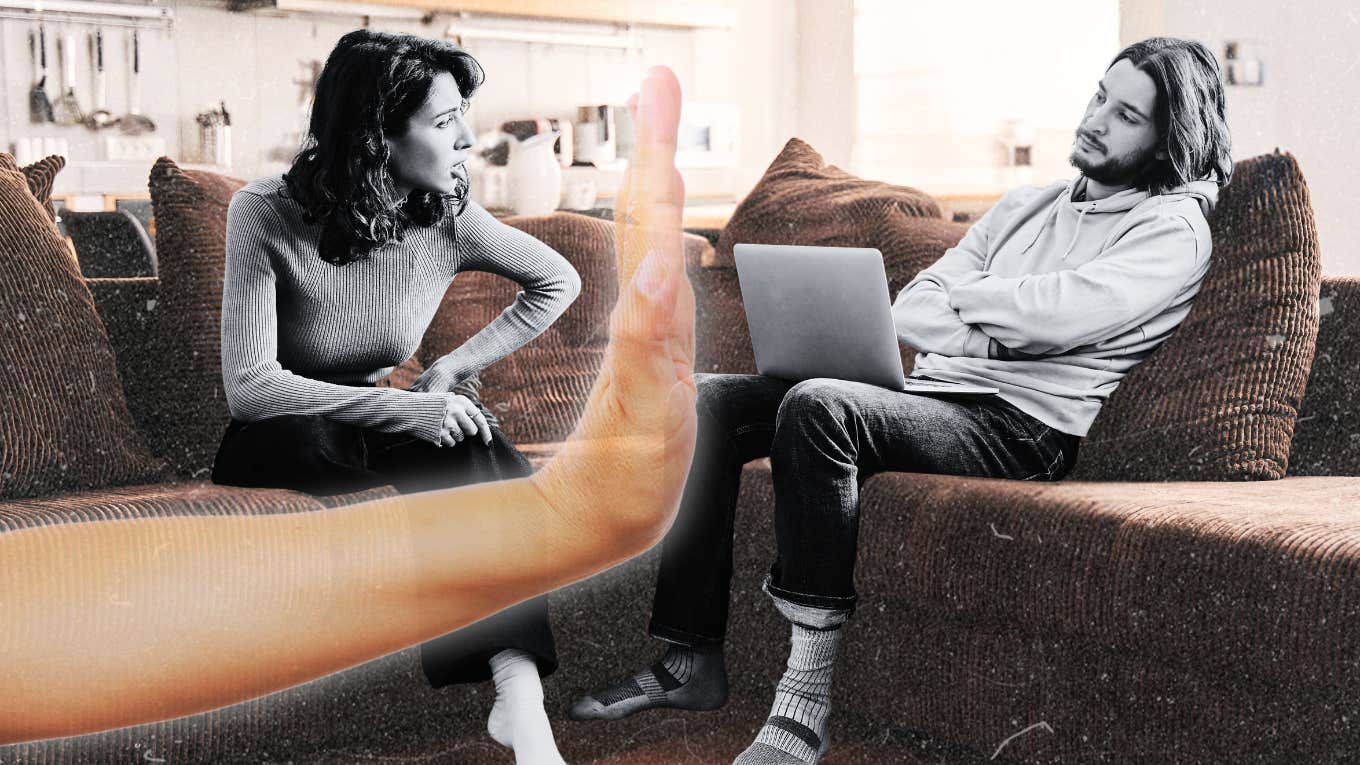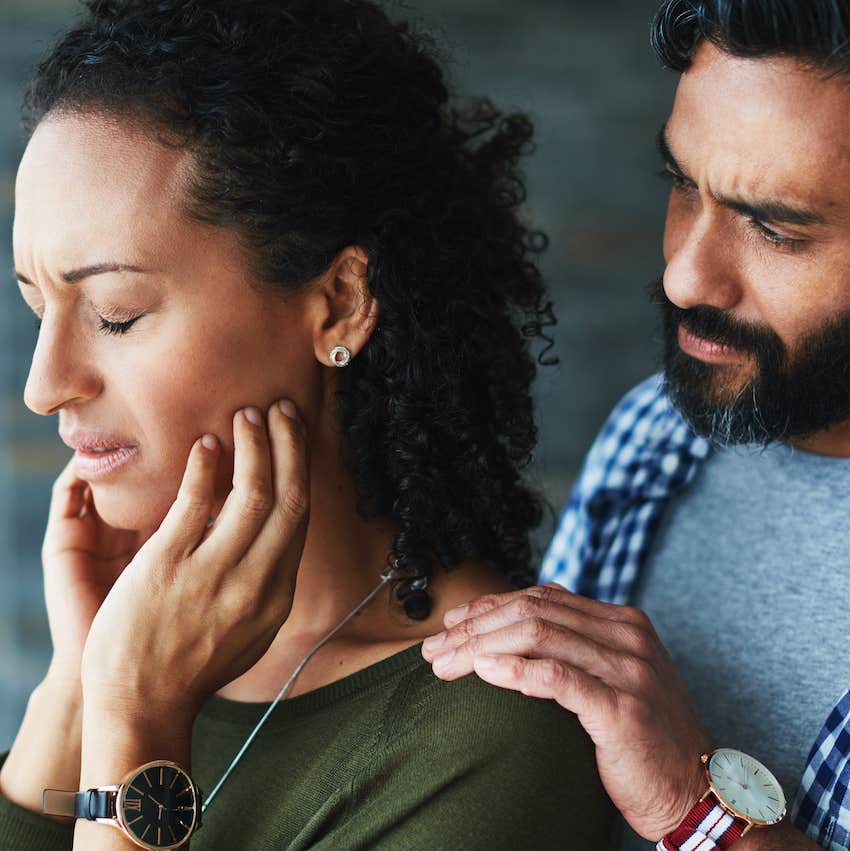How To Stop A Fight When You Accidentally Hit Your Spouse's Trigger Point
A therapist on how to maintain your boundaries while respecting your partner's sore spots.
 Olena Yakobchuk | Shutterstock, Dontstop | Canva
Olena Yakobchuk | Shutterstock, Dontstop | Canva Communication is just about the most important thing in any long-term relationship or marriage, but so many people still struggle to do it successfully. Whether you’re fighting, discussing finances, or just having a conversation about where to eat for dinner, there’s never a time when good communication isn't going to play a role.
Once you or your spouse's emotional trigger points have been hit by something that was said, it can cause an emotional reaction that can cause your conversation to spiral out of control. Whether it’s you or them who's been triggered, these situations can often explode into arguments with what feels like very little reason.
It’s easy to screw up and touch on an area that might hit a “raw spot” or be an emotional trigger for your partner.
Because we’re often inside of our heads and not always paying attention when we communicate, we can cause problems by not thinking about what we say before we say it.
Our words can hit on emotional trigger points, raw spots, or vulnerabilities that could hurt or offend someone we love — or our spouse's words can hit on a traumatic issue — and instead of realizing that it wasn’t an intentional attack, we become defensive or angry.
Simple conversations can blow up into arguments at the drop of a hat. So how do we stop ourselves from losing it over an unintentional verbal barb when we feel that pain caused by our emotional trigger point?
According to YourTango Experts therapist Jill Kahn and psychologist Stanley Tatkin, the problem is that our reactions to these issues are happening extremely quickly so we might not even be aware of how we’re reacting until we’ve already done it.
 PeopleImages.com - Yuri A via Shutterstock
PeopleImages.com - Yuri A via Shutterstock
The area of our brain associated with memory can react almost instantly when it’s triggered, so we’re momentarily not capable of pulling ourselves out of that response and thinking logically about what our partner’s intention was.
And, says Tatkin, it’s possible for that knee-jerk memory reaction to occur again and again if our partner doesn’t do something to rectify what they said or did to begin with.
Perhaps instead of realizing from your shocked expression that they messed up, they might press the issue by mistake, further compounding the situation.
Our emotional responses are incredibly fast — much faster than our thinking reactions, Jill Kahn points out, which can be exactly as problematic as it sounds.
To curtail this potentially catastrophic issue when it’s just happened, it’s important to take a step back before you respond to your partner.
Understand that the way you’re feeling is just a response to your previous trauma, and let your partner know — kindly — that you need a moment. You can explain to them that their words brought something out in you, and then take the time you need to compose yourself before talking to them about it.
And sitting down and explaining what your issue was can help make sure it’s avoided in the future. It can also let your partner know what they can do to help if something like that happens again, so things don’t get out of hand.
Communicating your needs and listening to your partner’s are so important!
Jill Kahn is a licensed marriage and family therapist and licensed professional counselor in Sandpoint, Idaho. She also uses EDMR therapy to help patients with Post Traumatic Stress Disorder. If you have any questions about your relationship issues or would like to reach out to her for any other reason, you can contact her here.
Merethe Najjar is a professional writer, editor, and award-winning fiction author from Atlanta, Georgia. She has had multiple publications featured in The Aviator Magazine, Infinite Press, Yahoo, BRIDES, and others.

